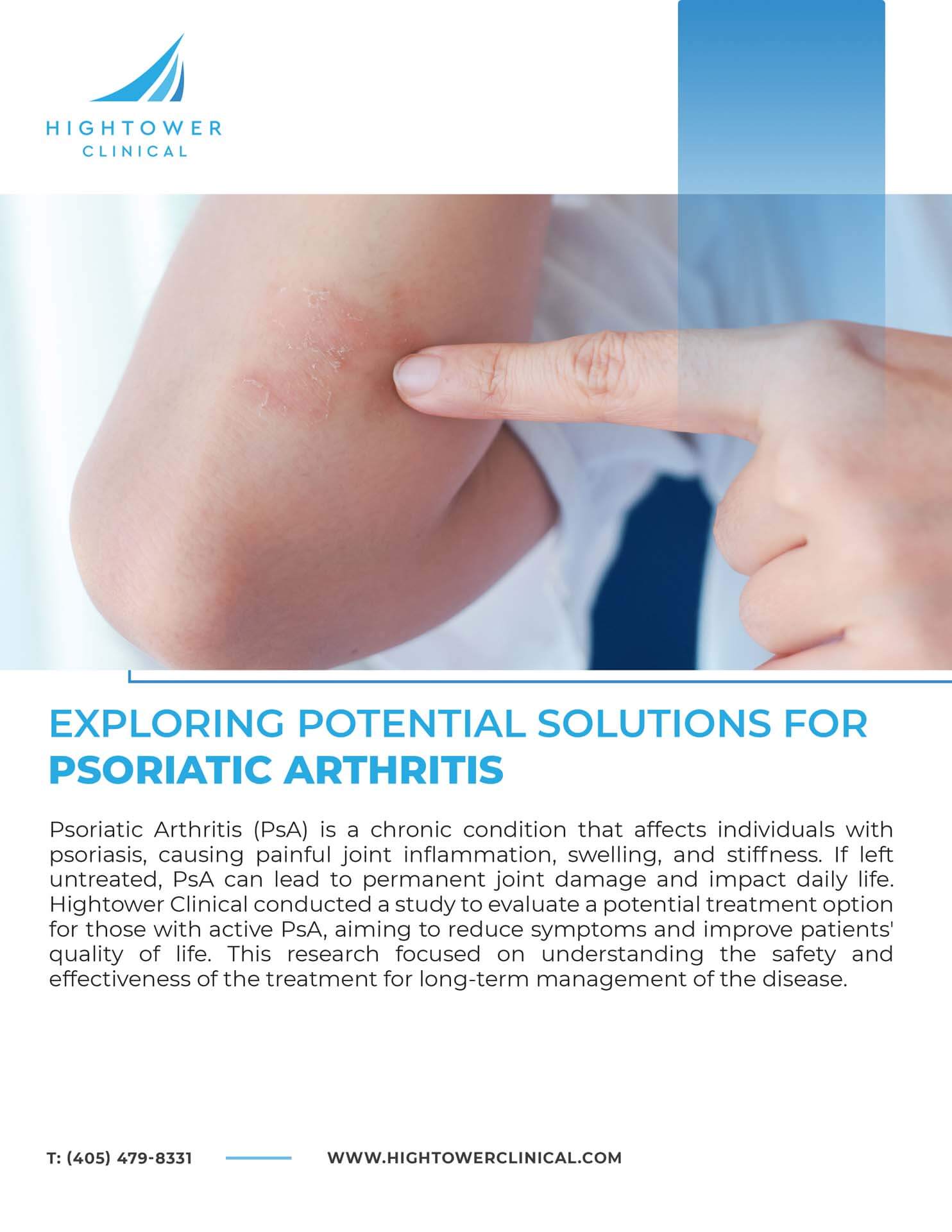Psoriatic Arthritis (PsA) is a chronic inflammatory condition that affects the joints and skin, leading to pain, swelling, and stiffness in people with psoriasis.
Psoriatic Arthritis
Hightower Clinical's study aimed to explore possible treatment options for Psoriatic Arthritis by evaluating the safety and efficacy of an investigational drug.
About Psoriatic Arthritis Study
Psoriatic Arthritis (PsA) is a chronic inflammatory condition that affects individuals with psoriasis, a skin disease characterized by red, scaly patches. PsA primarily impacts the joints, leading to pain, swelling, and stiffness, and can cause lasting damage if left untreated. Its symptoms can vary in severity, and early diagnosis and treatment are essential to prevent joint damage and improve quality of life.
Hightower Clinical conducted a study to evaluate the efficacy and safety of a possible treatment option for participants with active Psoriatic Arthritis (PsA). The study aimed to provide insights into its effectiveness in reducing symptoms and improving the quality of life for PsA patients.
Current Status
Not Recruiting
Study Count
1
Psoriatic Arthritis
| Study Name | Protocol Number | Sponsor |
|---|---|---|
| Psoriatic Arthritis | Bristol-Meyer Squibb |
Frequently Asked Questions
What are the risk factors for PsA?
Risk factors for PsA include having psoriasis, a family history of the disease, and environmental factors that may trigger the immune system.
What complications can arise from untreated PsA?
If left untreated, PsA can cause permanent joint damage, reduced mobility, and an overall decline in quality of life.
Why should I participate in a Psoriatic Arthritis study?
Participating in a study can help advance research, improve treatment options, and provide access to potential new therapies for managing PsA.




